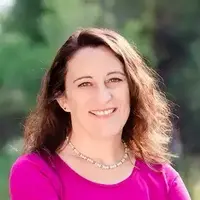Data-rich societally-relevant undergraduate teaching resources for geoscience classrooms and field courses
Poster Session
Authors
 Donna Charlevoix, EarthScope Consortium
Donna Charlevoix, EarthScope Consortium
 Beth Pratt-Sitaula, EarthScope
Beth Pratt-Sitaula, EarthScope
 Bruce Douglas, Indiana University-Bloomington
Bruce Douglas, Indiana University-Bloomington
 Becca Walker, Mt. San Antonio College
Becca Walker, Mt. San Antonio College
 Katherine Shervais, UNAVCO
Katherine Shervais, UNAVCO
UNAVCO (NSF's geodetic facility) and partners are developing and disseminating undergraduate teaching resources that feature geodesy data analysis and methods in order to address gaps in available undergraduate curricula and texts. The NSF-funded GEodesy Tools for Societal Issues (GETSI) project, in partnership with SERC and InTeGrate, is developing modules for use in introductory and majors-level courses that emphasize a broad range of geodetic data and quantitative skills applied to societally important issues of climate change, natural hazards, water resources (serc.carleton.edu/getsi). Published modules are "Ice mass and sea level changes" and "Imaging active tectonics with LiDAR and InSAR". Three more in process are: "GPS, strain, and earthquakes", "Measuring water resources with GPS, gravity, and traditional methods", and "Surface process hazards". All modules are about 2 weeks long and include student exercises, data analysis, and extensive supporting materials. Geoscience field courses are being targeted in another endeavor to facilitated student learning of geodetic field methods. Over the last five years UNAVCO, Indiana University field camp, and others have pioneered the teaching of terrestrial laser scanning (TLS) in undergraduate field courses. The TLS and newly added structure from motion (SfM) learning materials have been combined into a new "Analyzing high resolution topography" module for use in both field camps and academic year courses with field components. "Canned" data sets are also provided for courses that cannot collect TLS or SfM data themselves. All modules were designed and developed by teams of faculty and content experts and underwent rigorous review and classroom testing. Currently two more proposals are in review that would expand classroom and field topics to include a broader range of topics (e.g., volcanic hazards, more water resources, and ecological studies for classroom modules and campaign and real-time kinematic GPS for field courses).
